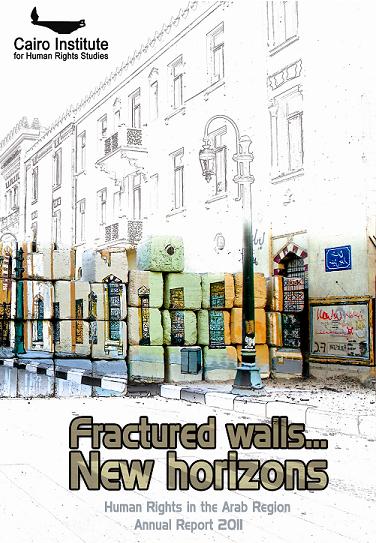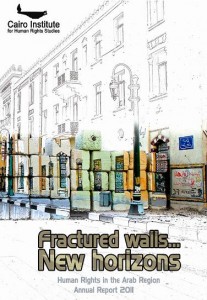The Cairo Institute for Human Rights Studies published its fourth annual report on the state of human rights in the Arab world. Through its research and analysis, this report addresses the repercussions of the revolutionary winds of change which swept across the region and succeeded in toppling the figures of tyranny, autocracy, and corruption in Tunisia, Egypt, Libya, and Yemen.
The report is divided into two sections, the first of which addresses the problem of human rights and democracy in seven Arab countries (Egypt, Tunisia, Algeria, Morocco, Syria, Saudi Arabia, and Bahrain). The second section, entitled “Countries under Occupation and Armed Conflict,” focuses on the occupied Palestinian territories, Iraq, Sudan, Yemen, and Lebanon.
Despite the diversity of the countries covered by this report, the study concludes that one year after the Arab Spring, it is clear that the achievements attained have not matched the extent of the sacrifices made by the Arab peoples who rose up and rebelled for the sake of freedom, social justice, and human dignity. With the exception of Tunisia, it appears that the choices facing these peoples are now limited to either narrow reforms of old regimes or the establishment of theocracy in their countries.
Share this Post


